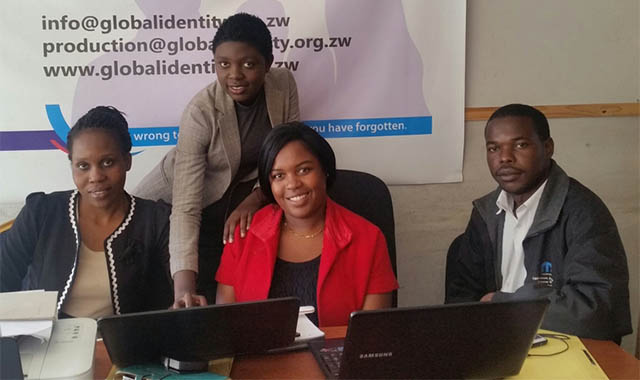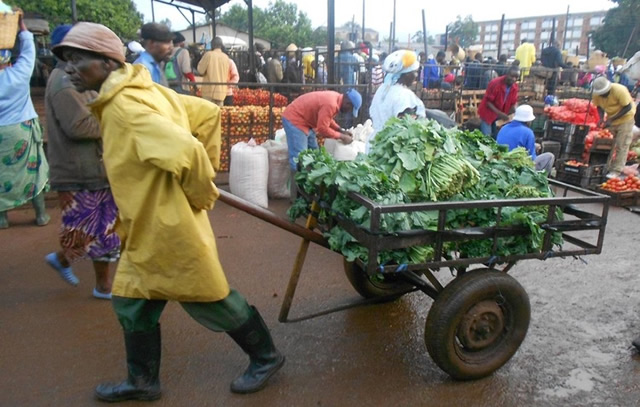Tugging on the ties that bind . . .

Ruth Butaumocho Gender Editor
Grant Mhuriyengwe was young when his father abandoned the family, leaving him in the care of his mother.
Yearning to establish how his father had been faring after abandoning him for over two decades, Grant set aside money and began his journey to find him. His father had fallen “off the radar,” and no one had any idea about his whereabouts, apart from suggestions that he could be at some farm somewhere in Westgate, Harare.
With the leads his mother had given him, he left Rusape and embarked on a journey to Harare. Grant later learnt that his father was dead, but had left three children, from different relationships.
Undeterred, he began a yet another journey to look for his half-brothers, whom he had no idea where they were domiciled or how they would receive him.
His efforts to reconnect with his half brothers, though expensive, were not futile. Within six months after setting out to find the family he had never met, Grant located his two half-brothers.
It was an emotional moment for Grant who had lost hope of reconnecting with the family that he loved so much, although he had never met. He even grieved for one of his “brothers” after learning of his death six months before he had reconnected with his family. Grant, however, concedes that he was lucky that he had the time, energy and resources to expend on such a cumbersome search.
Realising that they could be thousands of people who find themselves in similar situations, but with no resources, no means to kick-start, let alone sustain, such a mission, Grant has since set up an organisation to assist individuals to connect with family members they have never met.
“I went through a lot of anguish, pain and despair, looking for my dad and his family and I would not want anyone to experience what I went through,” he revealed in an interview recently.
Founded last year, the ZimFamily Reunion Trust is mainly involved in tracking lost relatives and those whose whereabouts are not known particularly men who sire children and never make any effort to reconnect with them.
“Establishing this Trust was mainly inspired by the need to assist individuals to locate relatives, particularly parents whom they have never met. I am not doing this for fame, nor for financial benefit but I genuinely want individuals, particularly children to reconnect with their parents,” said Grant.
He recalls that although his maternal relatives well catered for him while growing up, there was a constant nagging to trace his parentage.
“I really yearned to establish what had happened to my father, and a lot of children who were separated from their parents experience that anguish,” he revealed.
The Trust is currently dealing with 15 cases of mainly children looking for either relatives or parents, whom they have never met.
“We have since resolved three and the majority of the cases that we are handling are those of children who are looking for their fathers, with our youngest client being an 18-year old man who wants to establish his dad’s whereabouts.”
Grant says he has since realised that as children with absent fathers grow, so is their personal awareness of identity, family and kinship and an interest in wanting to know about the circumstances and their identity.
“We have not been operational for long, but the response has been overwhelming. People are phoning inquiring about our services and how long it will take us to solve their cases,” said Grant.
However, the process takes long because the Trust often faces financial challenges since its services are free of charge.
“It is a financially taxing exercise, because in some instances we have to travel long distances, tracing and verifying the information we would have received on the lost relative.
“In some instances we also have to pay for DNA tests, to ensure that we have the correct information, lest we raise false hope to a client,” he said.
Grant said the Trust took the decision to offer free services after realising that most people who come for assistance are usually less-privileged and do not have money to pay.
“From the time I started, I have been using my resources, which are slowly drying up. We, however, remain optimistic that something is going to come up so that we can sustain the Trust’s operations, which is also run by volunteers,” he said.
With funds permitting, the Trust intends to come up with a television programme where it can air the reunion episodes as part of its efforts to promote the importance of family as an institution.
There is an increase in the number of children who are being raised without knowing their fathers’ whereabouts.
Research suggests that some of children who grow up without the biological fathers seek to know them during adolescence. The problem of absent parents is not confined to Zimbabwe but is being experienced all over the world.
A research that was carried out in South Africa by the Department of School of Social Work, School of Humanity and Community Development at the University of Witwatersrand in 2012 revealed that for some children, unknown and undisclosed paternal identity can be a source of distress, family disharmony and identity confusion. The study noted that in some cases where children do not know their biological fathers, this is due to insurmountable factors such as stranger rape, or the unknown whereabouts of the putative father. In some cases, the whereabouts of the father are known to the mother, the maternal family and others but concealed to the child.
Feedback:[email protected]











Comments